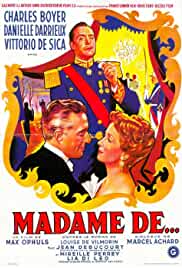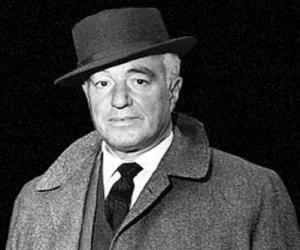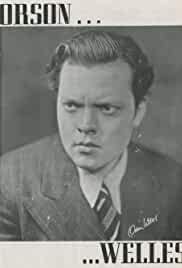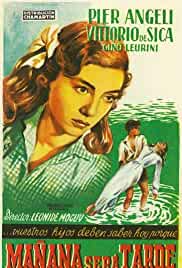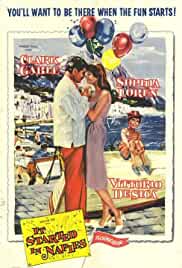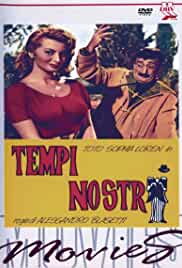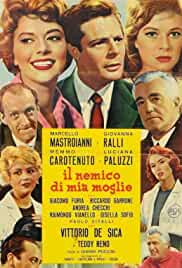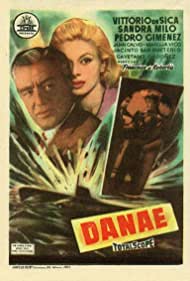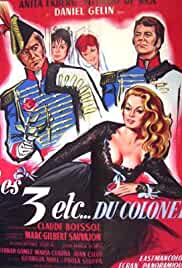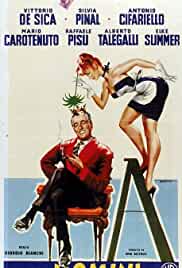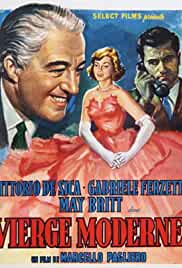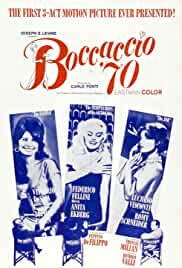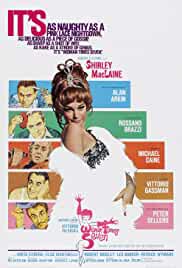Vittorio De Sica was first seen in the 1917 silent Italian adventure film ‘Il processo Clemenceau,’ directed by Alfredo De Antoni. He next appeared in films like ‘La bellezza del mondo’ (1927), ‘La compagnia dei matti’ (1928), ‘La vecchia signora’ (1932), ‘Due cuori felici’ (1932), ‘Paprika’ (1933), ‘Lisetta’ (1934), ‘Darò un milione’ (1935), ‘Amo te sola’ (1936), ‘Non ti conosco più’ (1936), ‘L'uomo che sorride’ (1937), ‘Il signor Max’ (1937), ‘Departure’ (1938), ‘Ai vostri ordini, signora!’ (1939), and ‘It Always Ends That Way’ (1939).
De Sica made his directorial debut in the 1940 Italian comedy film ‘Red Roses,’ written by Aldo De Benedetti. The film was based on a stage play by Aldo De Benedetti. That same year, he also directed the Italian comedy film ‘Maddalena... zero in condotta.’ The film was a remake of the 1938 Hungarian comedy film ‘Magda Expelled.’ He then went on to direct films like ‘Teresa Venerdì’ (1941), ‘Un garibaldino al convento’ (1942), ‘I bambini ci guardano’ (1944), and ‘La porta del cielo’ (1945). In 1946, he directed the Italian film ‘Shoeshine.’ The film received an honorary Academy Award and is often regarded as one of De Sica’s finest works.
In 1948, he came together with Duilio Coletti to direct the Italian drama film ‘Heart and Soul.’ De Sica also played the role of ‘Professor Perboni’ in the film which earned him the ‘Silver Ribbon’ for ‘Best Actor.’ That same year, he also directed the Italian neorealist drama film ‘Bicycle Thieves.’ The film was warmly received by critics and received an honorary Academy Award (Special Foreign Language Film). It is also widely considered as one of the greatest films ever made by many critics and media.
He continued to direct films such as ‘Umberto D.’ (1951), ‘Stazione Termini’ (1953), ‘L'oro di Napoli’ (1954), ‘Il Tetto’ (1956), ‘Anna di Brooklyn’ (1958), ‘La Ciociara’ (1960), ‘Il Giudizio universale’ (1961), ‘I sequestrati di Altona’ (1962), ‘Il Boom’ (1963), ‘Ieri, oggi e domani’ (1963), and ‘Matrimonio all'italiana’ (1964). In 1967, he directed the sex comedy anthology film ‘Sette volte donna,’ written by Cesare Zavattini. The failed to achieve success at the box office. He next directed films like ‘Amanti’ (1968), ‘I Girasoli’ (1970), ‘Il Giardino dei Finzi-Contini’ (1970), ‘Dal referendum alla costituzione: Il 2 giugno’ (1971), ‘Lo chiameremo Andrea’ (1972), and ‘Una Breve vacanza’ (1973). The year 1974 saw the release of the Italian drama film ‘The Voyage’ directed by De Sica. The film was the last directorial venture of De Sica. He was last seen in the 1976 television film ‘L'eroe,’ directed by Manuel De Sica.
